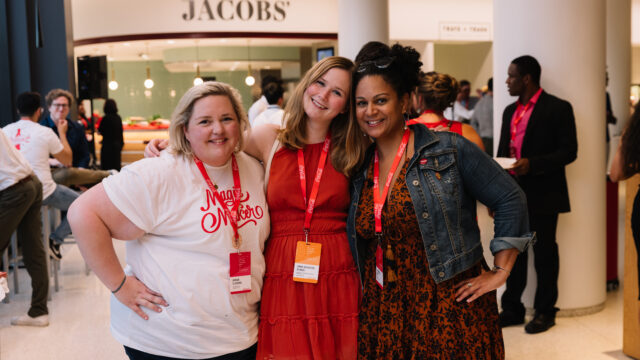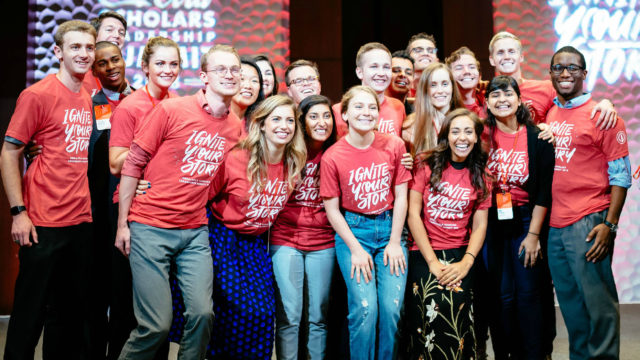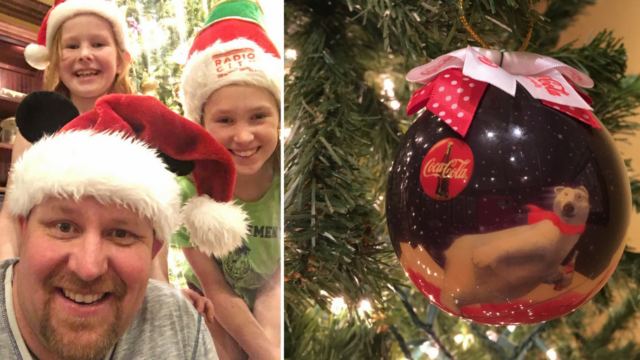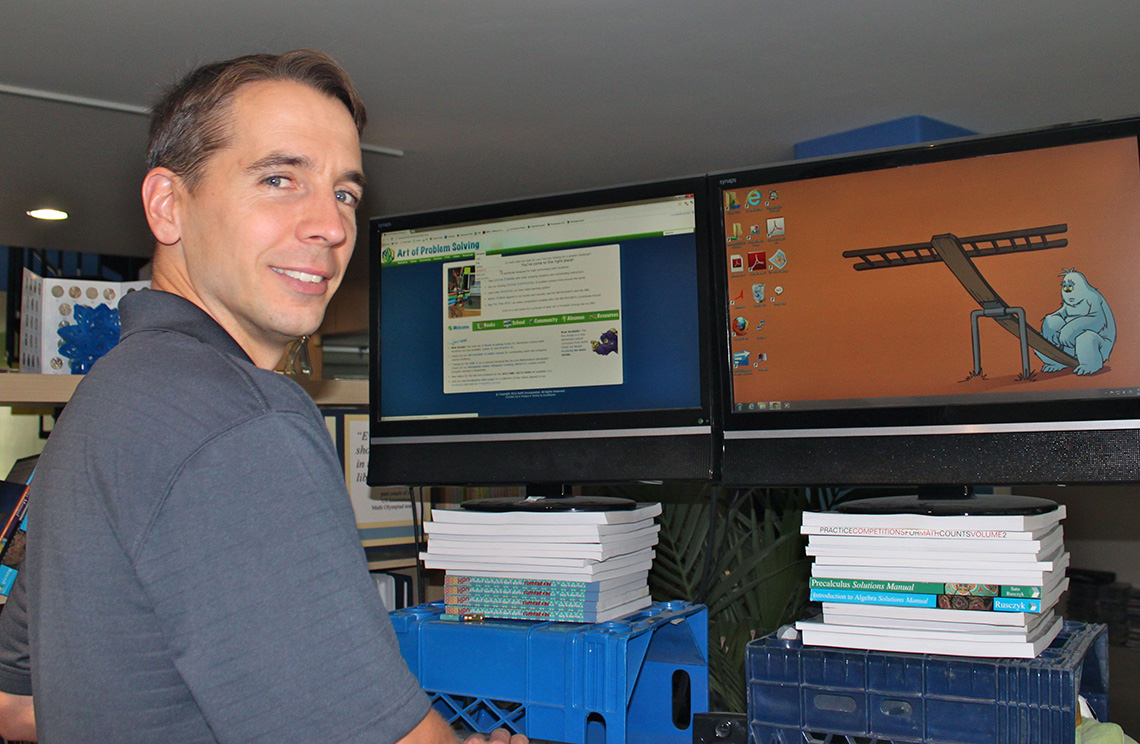
Art of Problem Solving: Connecting the World’s Top Math Students
Having a passion that isn’t shared by your peers can be very lonely, particularly in middle and high school—and especially when that passion is math. It’s easy for adults to see that being good at math is cool—just look at job satisfaction and compensation top 10 lists, most of which feature number “geeks” from top to bottom. But when you’re 13, it’s hard to appreciate how valuable your interest and abilities in math are, no matter how many times your parents and teachers tell you.
 When I was in high school, attending extracurricular events such as math contests was my only way to meet peers who shared my love of solving hard math problems. Although those events were few and far between, most of my closest friends today are people I met at them. During my years at Princeton, I started a national math contest with two of these friends and, as we finished college, I co-authored two textbooks with one of them. I tried grad school for a while, but it was clear to me that I wasn’t cut out for chemical engineering. I was a teacher.
When I was in high school, attending extracurricular events such as math contests was my only way to meet peers who shared my love of solving hard math problems. Although those events were few and far between, most of my closest friends today are people I met at them. During my years at Princeton, I started a national math contest with two of these friends and, as we finished college, I co-authored two textbooks with one of them. I tried grad school for a while, but it was clear to me that I wasn’t cut out for chemical engineering. I was a teacher.
So, I dropped out of grad school to become a high school teacher. One of my professors counseled against the move, arguing that it wouldn’t be what I was expecting. He was right. I lasted a semester, after coming up against the hard reality that there weren’t many students like me in most schools. Maybe I wasn’t meant to be a teacher after all. So I turned to bond trading for a few years.
But teaching still beckoned. I left trading, and decided that my foray into teaching wasn’t a mistake; it was just 10 years early. It was before the Internet was widespread. In 1993, I had to go to a school to find students. But in 2003, the situation was very different. I could build a virtual school and let selection bias bring the math-loving students to me.
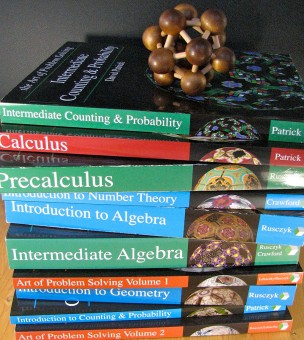 Our first session for Art of Problem Solving had 24 enrollments across two classes. In addition to an online school, we started a free online community, which quickly drew hundreds, then thousands, then tens of thousands of students from all over the world. Now, students don’t have to wait for once-a-month or once-a-year events to meet other students who share their passion for hard problems. They simply log in to our site and look for some interesting math. In the process, they end up forming close connections with others—some of whom may even become roommates at summer programs, classmates at college, and co-workers after graduation.
Our first session for Art of Problem Solving had 24 enrollments across two classes. In addition to an online school, we started a free online community, which quickly drew hundreds, then thousands, then tens of thousands of students from all over the world. Now, students don’t have to wait for once-a-month or once-a-year events to meet other students who share their passion for hard problems. They simply log in to our site and look for some interesting math. In the process, they end up forming close connections with others—some of whom may even become roommates at summer programs, classmates at college, and co-workers after graduation.
These connections among students have been very valuable for Art of Problem Solving as> well. We expect around 5,000 enrollments this year, have built an entire set of texts and classes designed specifically for eager middle and high school math students, and now are expanding to elementary school. We also have all sorts of resources on the site, because we spend most of our time building things we wish we’d had when we were in school.
If that sounds like a great job to you, please contact us—we’re hiring!
Richard Rusczyk became a Coca-Cola Scholar in 1989 in part because of his mathematical explorations outside the classroom. Now he’s developing opportunities for today’s best math students. If you are interested in learning more about Art of Problem Solving, please email aops@artofproblemsolving.com.


